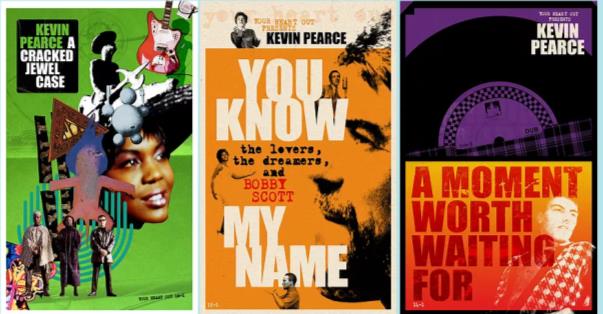
The Pop Group finally released a single in March 1979, and it’s hard to believe it wasn’t a hit. It feels like it was. After all, who could resist this pain racked, revolutionary romantic celebration of the girl who is beyond good and evil? It was a wonderful pop moment, and who’d dare doubt the truth of it when Mark Stewart insists: “I’d exchange my soul for her”.
It’s strange how certain groups attract very specific terms of reference, which are strictly adhered to. And yet there is another side to The Pop Group’s sphere of influence. For example, the great pop sound on Beyond Good And Evil inspired Julian Cope to ‘rip off’ its ‘staccato rhythm’ for The Teardrop Explodes’ Bouncing Babies. And Alan Horne of Postcard Records described The Pop Group’s debut as the ultimate punk rock single. His protégés Orange Juice would speak of wanting to be a cross between The Pop Group and Chic. You can certainly sense the influence of The Pop Group on the way the early OJs dressed.
There is, of course, a Dennis Bovell connection between The Pop Group and Orange Juice in that they both used Blackbeard as a producer. I think I’m right in saying that The Pop Group was the first of the punk era outfits to work with Dennis. In interviews there are references to how the group identified Dennis as the person they needed to work with, and how it was one particular track that they’d heard which convinced them of this. It’s tempting to speculate about which track this would have been, but there is a wealth of material recorded by Dennis around 1977/78, on his own, in the lovers rock field, or as part of Matumbi. His own work of the time certainly contains a number of gems and experimental excursions. As a lover of mixing things up Dennis Bovell was, of course, the perfect choice for producer of The Pop Group, but amid all the talk of dub and disco it should be noted the prominence he gives to the guitars on Beyond Good And Evil. They are from the start positively auto-destructive in the Shel Talmy tradition .
Significantly if there is one other single that in my mind is inescapably linked, temporally and spiritually, to The Pop Group’s debut it is The Jam’s Strange Town. In the April 1979 edition of the music monthly Zigzag The Pop Group’s Beyond Good And Evil came fourth in the Singles stakes. The Jam’s Strange Town came third. The Staircase Mystery by Siouxsie & The Banshees came second. And Robin Banks opted for Herpes Simplex from the Rosa Yemen 12” on Ze as the winner in a tough old contest. The magazine also had Mars’ 3E in its chart. The cover of that edition featured The Slits, and there was a great Scars interview too.
The first issue I actually bought of Zigzag was in September 1978, when it started to get better distribution and made it to the Lewisham branch of WH Smith’s. The Ramones were on the cover, XTC on the inside, along with a free flexi disc of two tracks from US psychedelic/punk outfits the Thirteenth Floor Elevators and the Red Crayola. Neither of these old groups meant anything to me, but I liked what I heard and got a sense of the historical significance of these sounds. The flexidisc was in fact a teaser for the reissues Radar Records was releasing of the Texan punk legends.
Radar was the company that won the race to sign The Pop Group, and on paper it seemed a good match. They were linked from Spring ’78, and to be honest there were no immediate independent options. Rough Trade, Fast, Factory had yet to have an impact. Radar was certainly one of the more interesting imprints around in the late 1970s, and the label’s catalogue is impressive and varied: Richard Hell & The Voidoids, Nick Lowe, Elvis Costello, Pere Ubu, La Dusseldorf, Soft Boys, Yachts, Iggy’s Kill City, Metal Urbain, Tanz Der Youth, Bette Bright, Thirteenth Floor Elevators, Red Crayola (old and new), Shadows of Knight, Electric Prunes, Ray Campi, Mac Curtis. Radar’s Andrew Lauder seems to have been very supportive of and patient with his signings. Around the time the single finally appeared, after a lengthy gestation period, he was quoted as saying: "The Pop Group are not content with being quite successful. They want enormous success. They’re so convinced and certain of what they’re doing that I actually find them awe-inspiring."
The Pop Group was initially indulged by Radar, and allowed to make a case for the single being copyright free. But with the label being wholly owned by WEA there was always going to be trouble ahead. The press gleefully pointed out all the inconsistencies and contradictions of The Pop Group, with such ‘high ideals and crazy dreams’, being part of a major label set-up. And for a change instead of the young revolutionaries being assimilated and neutered, the rebels became more entrenched, estranged and extreme, which made for a lot of fun.
And yet it’s tempting to return to something Bill Drummond wrote, in the lengthy From The Shores of Lake Placid chapter in his book 45, about writing to Seymour Stein when Sire expressed an interest in signing the Bunnymen on a five-album deal, outlining how albums were bringing about the destruction of pop music, and that pop was all about singles. He mentions a personal attack on Stein, telling him “he had released two of the greatest white pop records of the decade, Shake Some Action by the Flamin’ Groovies and Love Goes To A Building On Fire by the Talking Heads, and that creators of such perfection should never have been allowed in the studio again, leaving their respective singles to resonate their wondrous glories for eternity”. He concluded: “Both bands should have been forced to disband instantly”.

No comments:
Post a Comment